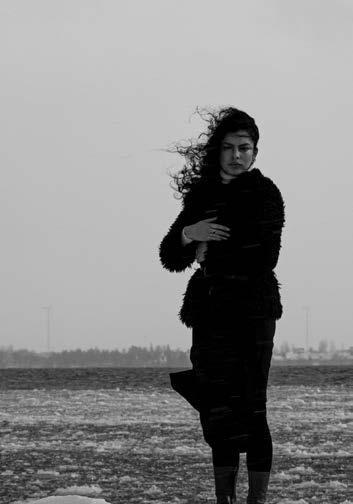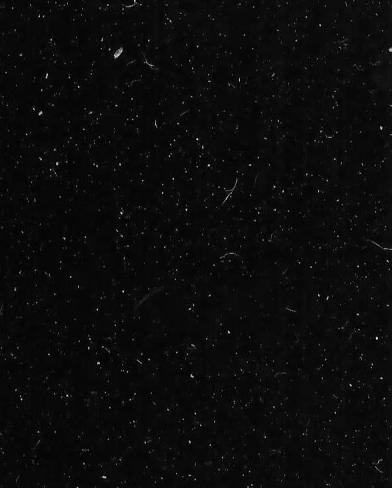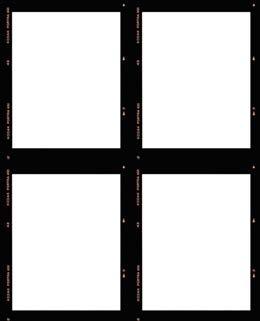
4 minute read
Threads of Crime
Being Middle Eastern is weird because a lot of the didactic storylines aimed at demonstrating the time, when a character is “Middle Eastern” that the showrunner isn’t racist, rather than they’ll simply cast an actor with brown hair and seeing these characters navigate problems brown eyes and give them an ethnic-sounding unencumbered by prejudice. Instead, we’ve name (see: Zosia Mamet in The Flight Attendant), become accustomed to seeing characters tackling or they’re a hard-working immigrant model the traumas of racism. In the few instances where minority, or they’re explicitly a this isn’t the case, where characters’ i terrorist, or an arms dealer, or a warlord, or someone who refuses to conform to the strict laws of the Geneva Conventions. P e o p l e have long lamented the unfortunate stereotypes Middle Eastern people get saddled with in the media. In trying to dismantle this ongoing narrative, a handful of shows and films have gone out of their way to prove that ethnicity is denoted merely by a non-white sounding name or vague ambiguity achieved by too much spray tan, the actual cultural nuances that would typically govern someone’s behaviour are lost altogether. It isn’t that their culture is an afterthought to the characters’ g r o w i n g problems, but rather that it isn’t a thought at all. Yes, I find that many Middle Eastern people and I share similar experiences that transcend s m o mething’s missing s o methingt’s ssing the Middle Eastern characters cultural specificities, but these they portray don’t fit into the similarities aren’t the ones being portrayed prescribed boxes Hollywood and society expects on screen. There’s an absence of of truth and of us: look, I can prove to you that I’m in fact, understanding, and it doesn’t seem like anyone’s not a terrorist. But rarely do we see individuals interested in remedying this. I think that this of Middle Eastern descent portrayed outside of bothered me at a baseline level, nagging gently,
but didn’t frustrate me enough until I watched Ramy last Fall.
Advertisement
Ramy, created by and starring Ramy Youssef, follows the everyday life of the Hassans, an Egyptian Muslim family living in New Jersey, predominantly following Ramy as he tries over and over again to become a better person. The characters we get to know intimately look like my relatives, my friends, the people I see at the community centre. For the first time – and I hate that it’s the first – I’ve seen a part of my life accurately reflected on screen. The way we interact with family, what we expect from each other, our friendships, our cultural preconceptions and our expressions are the same. Although we don’t share the same religion, I’d never felt the same jolt of recognition watching anything in my life. It filled me with joy.
What I found so important about the show is that it doesn’t explain itself to its viewers. Its aim isn’t to give a crash course to an unknowing audience, but rather for the uninitiated to be welcomed. This is something rarely afforded to ethnic people on television, and I can think of only a handful of recent examples that don’t compromise its own vision to explain itself to white people; Insecure and Jane the Virgin, to name two.
Since watching Ramy, my joy has made space for other emotions, mostly anger and distaste. I don’t even like referring to myself as “Middle Eastern” because it relies on Western-centric ideologies dictating geography and begs the question: East of what? I get frustrated because I can’t identify myself without Europe being my frame of reference. I was recently watching I Hate Suzie, a show written and created by white women, and twice in an episode Leila Farzad’s character, Naomi, mentions that she’s hairy, once even while hooking up with someone. Not even in an intimate moment, where we’re supposed to be rooting for Naomi for having good sex, is she free from her insecurities – insecurities, mind you, that are intrinsically stereotypical and rooted in the fear of not being “white enough.” Apart from stating that she’s Iranian, this is the only acknowledgement of her ethnicity.
For the longest time, we’ve been painted with the exact same brush, as though the vast region that we come from only shapes people from a singular mold. The world Ramy depicts is ultra-specific to Egyptian Muslims, but I did see fractions of myself in it just the same. Although the show primarily concerns itself with accurately portraying Muslim people on TV for truly one of the first times in history, I did see parts of my experience refracted through the lens of the show.
It’s not just about including Middle Eastern people or Muslim people so that showrunners can check a box and demonstrate that they do see that ethnic, non-Christian people exist, but rather emphasizing accurate portrayals of what we’ve actually experienced. You can actively combat a stereotype without directly speaking to your audience, without explicitly explaining to them why stereotypes are bad. If you let us exist on screen as we exist in real life, you won’t have to explain anything at all.
BY ALEXA MARGORIAN
OLIVIA
CREATIVE DIRECTOR BRIANNA HORTON PHOTOGRAPHER BIANCA NAIM MAKEUP & HAIR LAUREN THOMPSON CREATIVE ASSISTANT BEN EVANS-DURÁN MODEL OLIVIA GAGNON

35










